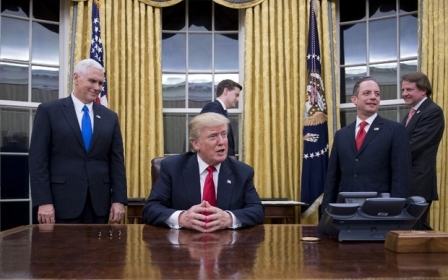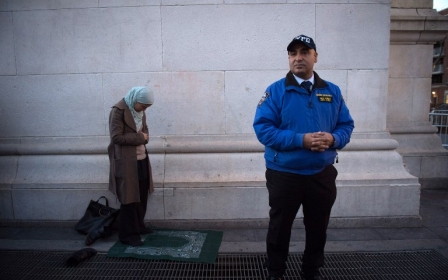US senators blast anti-radicalisation plan to target Muslims
A dozen Democratic US senators on Thursday denounced a Trump administration plan to revamp a government anti-extremism programme, saying narrowing its focus solely to Islamic threats could jeopardise security and may be illegal.
Restructuring the Countering Violent Extremism (CVE) programme to omit white supremacists and other non-Islamist groups "would severely damage our credibility with foreign allies and partners as an honest broker in the fight against violent extremism, and prove divisive in communities across our country," senators Cory Booker, Brian Schatz and 10 others wrote in a letter addressed to cabinet secretaries.
The current administration is planning to make Muslims the exclusive target of CVE, Reuters reported last week, citing five people briefed on the situation. It will be renamed "Countering Islamic Extremism" or "Countering Radical Islamic Extremism," according to the news agency.
The potential name change reflects a broader goal of Trump's - to exclude groups in the programme's purview such as white supremacists, whose followers have also carried out bombings and shootings in the United States.
Arab and Muslim organisations have had mixed perceptions of CVE since its inception in 2011, with many calling it discriminatory. But revamping the initiative to make it conspicuously target Islam is already earning condemnation from the Muslim community.
Despite scepticism from Muslim activists who opposed CVE, the programme claimed to push back against all sorts of extremism. For example, Life After Hate, an organisation that rehabilitates white supremacists, was awarded a $400,000 CVE grant - announced in December before Trump’s inauguration.
CVE aimed to address the causes of why some people are drawn to violence or extremism by providing grants and other resources to community groups to develop prevention efforts, including using social media.
Department of Homeland Security (DHS) officials who work on CVE met on Tuesday to continue discussions about the proposed changes, according to two sources who have worked closely with DHS on the programme.
Refocusing CVE efforts largely on Islam would "alienate Muslim organisations and individuals in the United States," the senators wrote to Secretary of State Rex Tillerson, Secretary of Defence James Mattis, Homeland Security Secretary John Kelly and Wade Warren, acting administrator for the US Agency for International Development.
At least three non-profit organisations have turned down CVE grants from DHS since Trump took office.
Leaders Advancing and Helping Communities (LAHC), a human services group in the Detroit suburb of Dearborn, and Ka Joog, a Somali community organisation in Minneapolis, each rejected a $500,000 CVE grant after being approved for it.
“I know it’s a lot of money, but it all comes down to principle. They are promoting a cancerous ideology that is promoting divisions and we don’t want to be a part of that,” Ka Joog’s executive director, Mohamed Farah, told CBS Minnesota.
Unity Productions Foundation, a non-profit based in Potomac Falls, Virginia, said it will find other ways to fund its project to produce videos that amplify the voices of Muslim scholars who reject militancy, after turning down a $396,000 CVE grant.
The senators warned in their letter that changes to CVE may increase the likelihood of militant attacks and "violate constitutional protections and the rights of American citizens".
White House press secretary Sean Spicer declined to comment on the reported changes last week, but said during a briefing that the programme was initially intended to focus on "rooting out radical Islamic terrorism".
New MEE newsletter: Jerusalem Dispatch
Sign up to get the latest insights and analysis on Israel-Palestine, alongside Turkey Unpacked and other MEE newsletters
Middle East Eye delivers independent and unrivalled coverage and analysis of the Middle East, North Africa and beyond. To learn more about republishing this content and the associated fees, please fill out this form. More about MEE can be found here.




